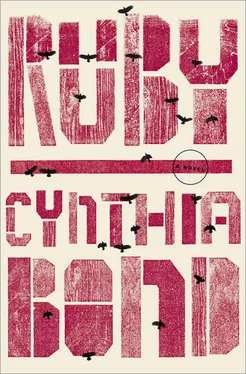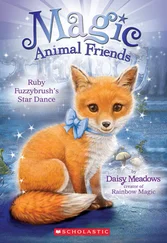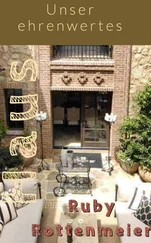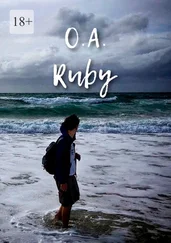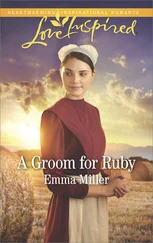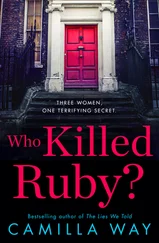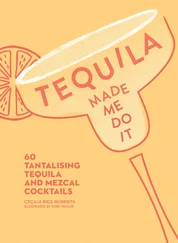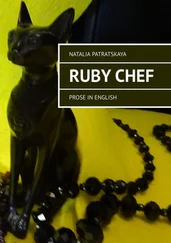THE CLOTH trembled against the cake in Ephram’s hand. The hot wind pressing it close. Ephram turned back and saw the steam from Bloom’s mash rising just over the low trees. He shook his leg and felt the cool flask between sock and skin. He took it from its hiding place. Not much left. Enough for a quick shot of courage before knocking on her door, but no more.
He looked down the long road in front of him and thought of Ruby at the end of it. Each step he took was a question. How would she answer? Would she laugh at him as Celia had done? Would she slam the door? Would she kiss him? Raise her skirt for him? Would she remember Ma Tante and Marion Lake when he showed her the little dolls? Ephram felt a root of fear spike into his belly so he unscrewed the flask’s cap and took another sip.
He turned quickly, flask slipped back into his sock. Bloom’s wasn’t far. Just a few shaded yards away now through the trees. A sudden thirst caught hold as he crossed into the open yard.
“What chu’ doin’ there boy?” Ephram looked over and saw Bloom and Sheriff Levy, Junior, Sheriff Levy’s only son, standing just to his left. Folks called him Sheriff Junior, though he was well past fifty. Ruddy faced with a beefy build, his mustard hair spread thick across his forehead.
“Sheriff Junior, you ’member Ephram Jennings. Live with his mama just up the way. Work up there as bag boy at the Newton Piggly Wiggly.”
He stared blankly at Ephram. “Sure do.” Then, “You ain’t spying are you?”
“No, Sir.”
“Stealing?”
“No.”
“Well you didn’t come over this way for spirits did you? Newton’s a dry county and jail’s the place for drinking men round here.”
“No, Sir.”
“Well that’s good.” He stared at Ephram for a long moment. “Can’t be too careful.” His mouth smiled, slow and steady, but his eyes stayed fast on Ephram.
Ephram noticed Sheriff Junior’s patrol car hidden behind the back of Bloom’s Juke.
“What kind you got there?” The Sheriff nodded towards the cake.
“Angel food. I’m — taking it to a sick friend.”
“Can’t be too sick if they eating cake.” He laughed at his joke. Bloom joined in.
“Don’t suppose you could spare a slice for a working man. Y’all got me so busy I plain missed my dinner.”
Ephram paused. He tried to imagine handing Ruby a half-eaten cake, then imagined saying no to this Sheriff Junior. The moment yawned uncomfortably.
A sudden clank to Ephram’s left. The Sheriff wheeled in that direction and pulled the forty-five from his holster. A large crow lifted in flight from Bloom’s trash can, perched in a nearby tree and cawed. The Sheriff laughed nervously, gun in hand. He looked at Ephram again.
“Can’t be too careful now ’days.”
“Yes, Sir.”
“Later, Bloom.”
“Thanks fo’ stoppin’ by.”
The Sheriff walked to his car with the gun loose in his hand, got in and rolled away. When he had cleared the distance of vision, Bloom walked swiftly to Ephram, finger poking hard into his chest. “What is wrong with you!”
Ephram stepped back holding tight to his cake.
“What I tell y’all ’bout comin’ here daytime Saturday?” Bloom turned back towards his house. “Y’all gone git me and your own stupid ass kilt over this shit! Man lets me be. Just don’t want nobody foolin’ with his business.” He paced, raising dust. “Then wouldn’t give him a piece of cake! Get away from here Ephram Jennings and you best stay ’way fo’ a month.”
Ephram stood as if punched, then turned and walked swiftly to the road. He was breathing quickly. A sticky musk stained the underarms of his shirt. His shoes were dusty, his pants torn. How could he face her now? He felt the tug to turn back but fought against it. He looked at his Timex. Ten after four. He was losing the day. But, he figured, he could still stop at P & K, stitch his pants and reach Ruby’s before nightfall if he was careful. And Ephram Jennings was a careful man. He was careful of the cloud of sweetness he carried on Celia’s fine plate, careful not to let the August breeze blow dirt under the cloth. Careful not to hope.
Suddenly, a cool sludge plopped onto the dome of his scalp. It dribbled mulberry and white down his temple, his cheek and onto his clean collar. Ephram looked up and saw what appeared to be the same black bird from Bloom’s making lazy circles in the air above him. As he retrieved his handkerchief to wipe the bird’s waste from his face and neck, the bird began to fly south over the Samuels farm. Ephram watched as it veered west towards Bell land.
The crow caught a cross current and gained altitude as the man grew small and then vanished behind a rise in the earth. She tilted with the curve of the horizon. The sun warmed her hollow bones, her blackest feathers holding its heat. She flew over thatches of land, gold, green, brown, following the red river road until she reached the town square. Far below she saw a knot of men crowded onto the store’s steps, the women fanning their faces and looking on, headscarves tied. A woman chasing three boys off with a broom. She saw the different roofs, black tar, shingled, wood. She flew on. More farms. Wide, wild pines spearing the clouds. Pockets of green. Bony fences leaning into the road or boxing in pigs, chickens, cows. A woman in white hanging white sheets out to dry. A berry cobbler set out to cool. A red melon split on an outdoor table, children gathering around it like flies. The crow saw two men plodding home, carrying empty pails. Smoke from the mill in the distance. She flew past Marion Lake and the tangle of woods beneath, a wealth of beetles, grasshoppers and other legged insects, until she finally reached Bell land. The dried grass and empty hard field. Figs and apricots wormy on the earth. Gravestones littering the hillside. The house with holes poked through the roof. Rain and sun cutting them larger each day until now the foot of the girl’s bed was in view. She was asleep on her belly, her black soles facing the sky. The crow landed outside of her window, feathers light with ruffled wind. She spread her wings and cawed.
Inside the old house Ruby was sleeping, which was rare. Ruby did not sleep — much. For her mind tangled like a fine gold chain, knotted, she was certain, beyond all repair. Still she tried each day to trace the links, only to lose them again and again.
Ruby had lost much more than that. She had lost the 562 dollars she had brought to Liberty, tucked inside the change pocket of her Etienne Aigner purse. A week later, the purse had gone missing. Then, inexplicably, four pairs of capri pants, six madras blouses, three shirtwaist dresses. Most of her shoes, including her favorite pair of Beth Levine red stiletto pumps. Her hot comb, her Royal Crown hair oil, her lipstick, makeup bag, and the suitcases they had all come in.
She began losing time as well. It folded in on itself so that hours passed in minutes, weeks in days. She would start walking, eyes on the road, and suddenly find herself eight miles away, outside of Newton; or in a ditch; or once, chin high in Marion Lake, water filling her mouth, coughing, rasping.
Sometimes Ruby would wake on the forest floor — her clothes hiked above her waist, the sour milk scent of a man on her thighs. Her ribs aching with each inhalation, plum bruises on her face. The burning scrapes on her back made her cry out when she tried to stand. Still she would lift herself, smooth her dress and walk back to her Granddaddy’s land.
She lost the rising curve of her shape. Already thin, she wasted to a sliver, her clavicles like handrails. The plump in her calves and thighs disappeared. Her breasts drew close to her chest. Her wrists withered to blades of grass, bones knobby and hard under her skin.
Читать дальше
